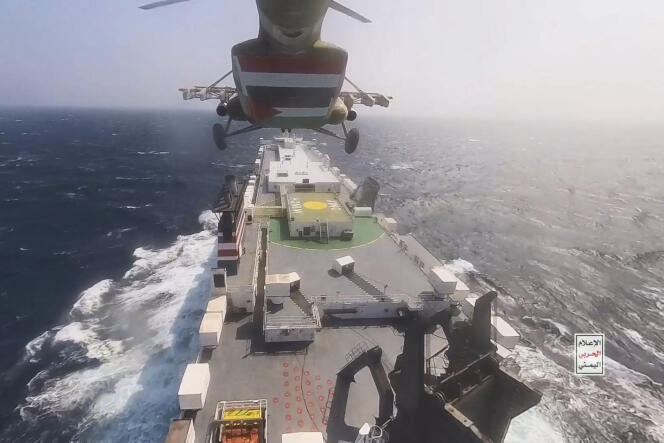CAIRO: Yemeni Minister said that the foreign ships will have to obtain a permit from Yemen’s Houthi-controlled Maritime Affairs Authority before entering Yemeni waters. Houthi Telecommunications Minister Misfer Al-Numair said on Monday.
Houthis have launched drones and missiles against international commercial shipping in the Gulf of Aden since mid-November, saying they are acting in solidarity with Palestinians against Israel’s offensive in Gaza.
One of two anti-ship ballistic missiles fired by Yemen’s Houthis at the container vessel M/V MSC SKY II in the Gulf of Aden hit the ship and caused a significant damage, according to the US Central Command.
“(We) are ready to assist requests for permits and identify ships with the Yemeni Navy, and we confirm this is out of concern for their safety,” Al Masirah TV, the main television news outlet run by Yemen’s Iran-aligned Houthi movement, reported Al-Numair as saying.
The territorial waters affected by the Yemeni order extend halfway out into the 20-km (12-mile) wide Bab Al-Mandab Strait, the narrow mouth of the Red Sea through which around 15 percent of the world’s shipping traffic passes on its way to or from the Suez Canal.
Initial reports indicated no injuries and the Liberian-flagged, Swiss-owned container vessel did not request assistance and continued on its way, CENTCOM said in a statement. A military spokesperson for Houthis said that they targeted the vessel with “a number of suitable naval missiles.” Houthis are targeting Red Sea shipping lanes in support of Palestinians in the Israel-Hamas war in Gaza.
The US military said that Houthis also launched an anti-ship ballistic missile from Yemen into the southern Red Sea, however, it impacted the water with no damage or injuries to commercial or US Navy ships.
The United States and Britain have launched strikes on Houthi targets in Yemen and redesignated the militia as a terrorist group. Houthis’ Red Sea attacks have disrupted global shipping, forcing firms to re-route to longer and more expensive journeys around southern Africa, and stoked fears that the Israel-Hamas war could spread to destabilize the wider Middle East. In normal days, over a quarter of global container cargo such as apparel, appliances, auto parts, chemicals and agricultural products like coffee — move via the Suez Canal.










